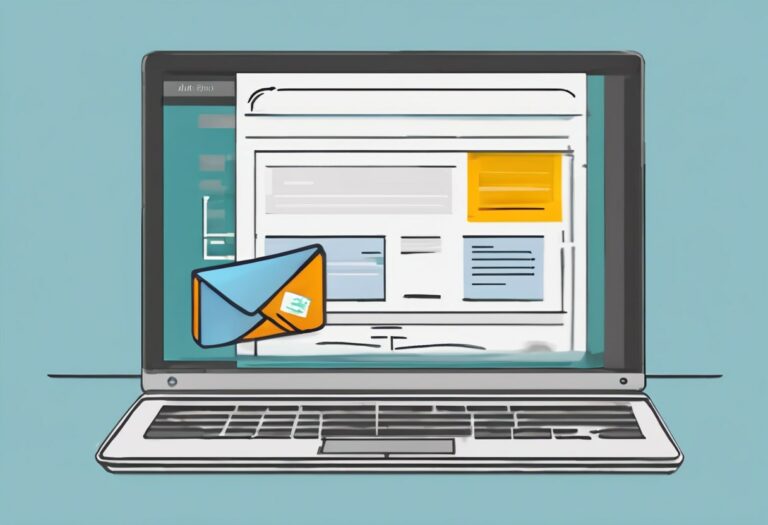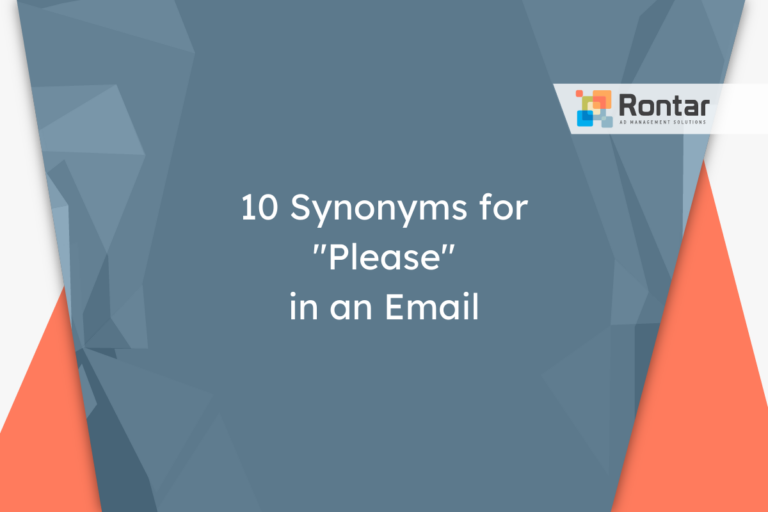10 Formal Synonyms for “Much Appreciated” in an Email

Finding the right way to say thank you in emails is important. “Much Appreciated” is a common phrase, but sometimes we need different words to fit the situation better.
This article provides 10 formal alternatives to help you express your gratitude professionally. Whether you’re thanking a colleague or a client, these phrases will help you convey your appreciation clearly and politely.
Is It Formal to Say “Much Appreciated”?
The phrase “much appreciated” is polite and informal, but it may not be considered professional in certain contexts.
Generally, “much appreciated” works well in emails where a degree of familiarity exists, and the tone is friendly yet respectful. It fits best in correspondences with colleagues you have interacted with before, rather than in first contacts or very formal business communications. It works equally well in emails and work chats.
Email example:
Dear Emily,
Thank you for sending over the files I requested earlier. Your quick response was much appreciated.
Best regards,
Mark
Now, let’s weigh the pros and cons of using “much appreciated” in professional emails.
Pros:
- Conveys gratitude in a concise manner.
- Softens the tone, making the email seem friendly.
- Appropriate for less formal or semi-formal communication.
Cons:
- May not suit very formal or traditional business contexts.
- Could be perceived as too casual or overly familiar in some situations.
- Lacks the specificity of why the gesture is appreciated.
While “much appreciated” is effective in expressing gratitude, someone might opt for synonyms or alternatives to tailor their message more closely to the desired level of formality or to add variety to their language.
10 Other Ways to Say “Much Appreciated” in an Email
Looking for a formal but friendly way to express your gratitude in professional emails? Here are 10 common alternatives to “Much Appreciated” that fit the workplace environment:
- Thank you for your assistance
- I’m grateful for your help
- Your support is invaluable
- Thank you for your effort
- I truly appreciate your work
- Your contribution is appreciated
- Thanks for your quick response
- Thank you for going the extra mile
- Your help has been essential
- I value your input
1. Thank you for your assistance
This alternative is slightly more formal than “much appreciated” and very direct, expressing gratitude efficiently. It works well in professional settings where assistance has been given, emphasizing the politeness of acknowledging someone’s effort.
This expression is better suited for emails to colleagues or external partners who have provided specific assistance. It’s ideal for use in professional messages where you want to be clear and direct about your gratitude. Email is the best medium for this phrase.
Example:
Hi Mike,
I just wanted to let you know that everything is set for tomorrow's meeting. Thank you for your assistance with all the arrangements.
Best regards,
Emily
2. I’m grateful for your help
This phrase is more personal and conveys a sense of heartfelt appreciation. While it remains professional, it adds a layer of genuine gratitude to the message.
It’s particularly effective when you want to convey more than a perfunctory thank you to someone who has provided substantial help. This could be in response to a colleague’s support on a project or a mentor’s guidance. It suits formal and semi-formal emails alike.
Example:
Dear Rebecca,
I wanted to let you know how much I'm grateful for your help during the product launch. Your expertise made a big difference.
Best,
Liam
3. Your support is invaluable
This alternative highlights not just gratitude but also the significant impact of the support received. It’s a formal and polite way to acknowledge someone’s contribution.
This expression is most suited for situations where someone’s support has truly made a difference in a challenging situation or project. It’s a great choice for messages to mentors, senior colleagues, or team members who have gone above and beyond. Email communications benefit most from this phrase.
Example:
Dear Melanie,
I hope this message finds you well. Your support throughout the negotiation process was invaluable, and I am truly thankful.
Sincerely,
Derek
4. Thank you for your effort
This phrase is straightforward and effectively communicates appreciation for someone’s hard work. It’s suitable for both formal and semi-formal professional settings.
Use this alternative when you want to acknowledge the effort someone has put into a task or project, whether they are your subordinate, a colleague, or a supervisor. It is most appropriate in emails or other written communications within the workplace.
Example:
Dear Simone,
Thank you for your effort in organizing the team meeting. Your hard work did not go unnoticed.
Kind regards,
Julian
5. I truly appreciate your work
This alternative conveys a sense of deep gratitude and is both polite and professional. It adds an element of sincerity to the message.
Best suited for scenarios where the recipient’s work has had a significant positive impact, such as completing a difficult task or contributing unique skills to a project. It is ideal for emails to team members or external collaborators.
Example:
Dear Alex,
The completion of the project on time was largely due to your hard work and dedication. I truly appreciate your work.
Best wishes,
Jordan
6. Your contribution is appreciated
This phrase is formal and acknowledges the recipient’s part in a collective effort. It’s a polite way to recognize someone’s input.
Ideal for messages to team members or project contributors, it highlights the value of collective work and individual contributions within a professional setting. Email is the most suitable medium for this expression.
Example:
Dear team,
As we wrap up this phase of the project, I want to acknowledge everyone's hard work. Your contribution is appreciated by all of us.
Regards,
Nathan
7. Thanks for your quick response
This alternative is great for acknowledging timely replies and is both professional and polite. It’s less formal but very appropriate in most workplace communications.
Perfect for emails to colleagues or external contacts who have provided needed information or feedback swiftly. It encourages prompt communication and appreciates the efficiency, making it suitable for professional email correspondences.
Example:
Dear Harper,
Thanks for your quick response to my request for the report. It helped me proceed without delay.
Cheers,
Evan
8. Thank you for going the extra mile
This phrase is a polite yet powerful way to express appreciation for exceptional effort. It implies that the recipient has done more than what was expected.
When a colleague or employee has put in extra effort to ensure the success of a project or task, this expression is highly appropriate. It suits both internal communications with team members and emails acknowledging the special efforts of external partners.
Example:
Dear Jenna,
Your dedication to making our client happy has not gone unnoticed. Thank you for going the extra mile.
All the best,
Thomas
9. Your help has been essential
This alternative stresses the importance of the help received, making it a formal and polite acknowledgment of someone’s contribution.
This phrase is especially fitting when the support or assistance provided has been crucial to the success of a project or task. It is best used in professional emails to team members, support staff, or even external advisors.
Example:
Dear Pat,
I wanted to express my gratitude for your assistance with the recent audit. Your help has been essential to our success.
Regards,
Omar
10. I value your input
This expression is professional, formal, and conveys respect for the recipient’s opinions or contributions. It’s a polite way to appreciate someone’s involvement in a discussion or project.
This is particularly effective in scenarios where feedback, advice, or specific contributions have significantly influenced the outcome of a project or decision. It’s applicable in emails to colleagues, mentors, or consultants who have provided valuable insights.
Example:
Dear Leslie,
As we move forward with the proposed changes, I want to acknowledge your role in this process. I value your input greatly.
Thank you,
Sam
Final Thoughts
Expressing gratitude in professional emails is crucial for maintaining positive relationships. The alternatives to “Much Appreciated” offered in this article range from formal to slightly more personable, providing you with options for various situations. Choosing the right phrase can make your emails more impactful and meaningful.






